Representing Talent
Hollywood Agents and the Making of Movies
Violaine Roussel
The University of Chicago Press
Chicago and London
The University of Chicago Press, Chicago 60637
The University of Chicago Press, Ltd., London
2017 by The University of Chicago
All rights reserved. No part of this book may be used or reproduced in any manner whatsoever without written permission, except in the case of brief quotations in critical articles and reviews. For more information, contact the University of Chicago Press, 1427 E. 60th St., Chicago, IL 60637.
Published 2017
Printed in the United States of America
26 25 24 23 22 21 20 19 18 17 1 2 3 4 5
ISBN-13: 978-0-226-48680-2 (cloth)
ISBN-13: 978-0-226-48694-9 (paper)
ISBN-13: 978-0-226-48713-7 (e-book)
DOI: 10.7208/chicago/9780226487137.001.0001
Library of Congress Cataloging-in-Publication Data
Names: Roussel, Violaine, author.
Title: Representing talent : Hollywood agents and the making of movies / Violaine Roussel.
Description: Chicago : The University of Chicago Press, 2017. | Includes bibliographical references and index.
Identifiers: LCCN 2016057354 | ISBN 9780226486802 (cloth : alk. paper) | ISBN 9780226486949 (pbk. : alk. paper) | ISBN 9780226487137 (e-book)
Subjects: LCSH: Theatrical agentsCaliforniaHistory. | Theatrical agenciesCaliforniaHistory. | Motion picture industryUnited StatesHistory20th century. | Hollywood (Los Angeles, Calif.)History.
Classification: LCC PN1993.5.U65 R75 2017 | DDC 384/.80979494dc23 LC record available at https://lccn.loc.gov/2016057354
 This paper meets the requirements of ANSI/NISO Z39.481992 (Permanence of Paper).
This paper meets the requirements of ANSI/NISO Z39.481992 (Permanence of Paper).
For Nick
Contents
An Agent at Work
How do agents contribute to the making of movies and other entertainment products? To be introduced to the unknown world of Hollywood agents, what better way than letting one of them tell us the story of a movie with which he got intimately involved? One of the few movies that made recent film history, The Silence of the Lambs remains to this day one of only three films that won the Oscar for the five main categories, and the only thriller that ever won a best picture (see However, like many other big hits, this movie almost didnt get made.
| Table 1 The Silence of the Lambs (1991) in Sum |
|---|
Directed by | Jonathan Demme |
Produced by | Kenneth Utt, Edward Saxon, Ron Bozman |
Screenplay by | Ted Tally |
Starring | Jodie Foster, Anthony Hopkins, Scott Glenn, Ted Levine |
Distributed by | Orion Pictures |
Country | USA |
Budget (source: Box Office Mojo) | $19 million |
Box office, domestic + foreign (source: Box Office Mojo) | $272.7 million |
Awards | Academy Awards, won: Best Picture, Edward Saxon, Kenneth Utt, Ron Bozman; Directing, Jonathan Demme; Actor in a Leading Role, Anthony Hopkins; Actress in a Leading Role, Jodie Foster; Writing (adapted screenplay), Ted Tally Academy Awards, nominated: Film Editing, Craig McKay; Sound, Tom Fleischman and Christopher Newman Golden Globes, won: Best Performance by an Actress in a Motion PictureDrama, Jodie Foster |
In 2014, I met with Robert (Bob) Bookmanthe motion picture literary agent who sold the rights to the book from which the film is adaptedin one of the popular restaurants of Beverly Hills where Hollywood professionals are used to discussing projects and negotiating deals around lunch or drinks. There, the veteran agent, expert of the Hollywood machinery, shared the details of the epic story that led to the production of this film, the obstacles that had to be overcome, and the long and chaotic process of assembling the various pieces that made up such an unprecedented success. He immediately highlighted the paradoxical fact that it was so difficult to get to sell the rights [... ] given its later success. Yet its not a unique example. The notion that all hits are flukes is familiar to the entertainment industry (W. Bielby and D. Bielby 1994). As Bookman put it, Its just amazing that, kind of like grass growing through concrete sidewalks, there are these miraculous things that happen. This story sheds light on the erratic creation of a hit, making visible in a paradigmatic way some of the elements that allow for the improbable to become real.
This story is told from the point of view of a motion picture literary agent; that is, an agent who represents writers and directors and sells materialthe rights to a book, a screenplay, a spec script (speculative screenplay, or a noncommissioned, unsolicited screenplay)to production professionals. When our story begins, Bob Bookman is already a well-respected and influential player in the industry working at Creative Artists Agency (CAA), then indisputably the top talent agency, run by Michael Ovitz at the time. He is armed with experience both as a former literary agent at International Creative Management (ICM, now ICM Partners), a powerful company especially in the field of literary agenting, and as a former studio executive: although he left the production side after six years to go back to agenting and join CAA, this experience afforded him valuable connections and an intimate understanding of studio dynamics.
In the late 1980s, Thomas Harris, the author of the famous Hannibal Lecter book series, is represented by a powerful New York literary agent, Morton Janklow, who is known for his client list of best-selling authors. The Silence of the Lambs is the second novel of this series. Thanks to his preexisting connection with Janklow, Bob Bookman receives the mandate to sell the rights to the book to a studio and becomes one of Harriss This case study introduces us to the complex process by which a piece of written material becomes a movie.
This is when the marathon of the motion picture literary agent to sell the rights to The Silence of the Lambs starts. This marathon involves multiple layers of players caught up in an intricate game. Bob Bookman first needs to go to De Laurentiis, whose contract with Warner Brothers stipulates a first negotiation/last refusal right. Such a right reserves for the producer who optioned a novel in a book series the first opportunity to purchase the movie rights to the sequel. De Laurentiis passes on the sequel. The agent then has to deal with the marketplace. This means circulating the book and examining offers from potential buyers on the production side; trying arousing interest on the part of others; and assessing the value and right price of the material, taking into account a combination of contradictory elements: the unappealing genre of the book, the failure of Manhunter, andon the opposite endthe fact that The Silence of the Lambs has now become a New York Times best seller. This evaluation process is a collaborative one: Bookman, Harris, and Harriss New York book agent, Janklow, agree not to accept a few offers that they receive from independent producers, judged to be too low financially.
The effort to shop a film project around to potentially interested buyers can be coordinated by a literary agent when the writer/director is the key piece of a package, like in the present case, but also by a talent agent who represents a star, by a stars manager, or by a team made up of several of these participants, depending on each particular situation. As our case study illustrates, this process sometimes proves to be a long and difficult marathon, when a project struggles to find a producing home, is put on hold for years, and might have to change form to finally meet the interest of a studio or a financier. The buyers to which the project gets offered are not randomly selected; its not about chasing all studios and producers in town either. Part of the agents role is therefore to evaluate the

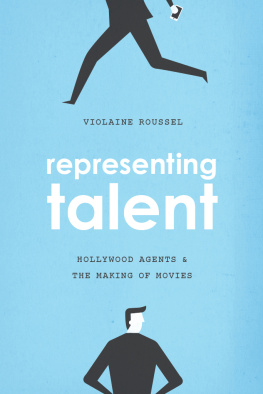


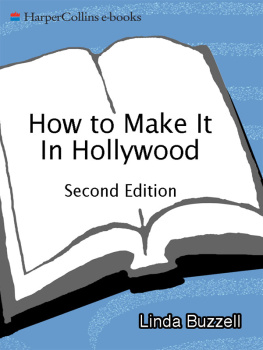
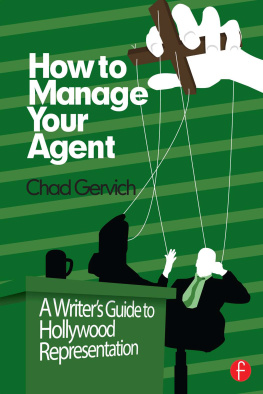
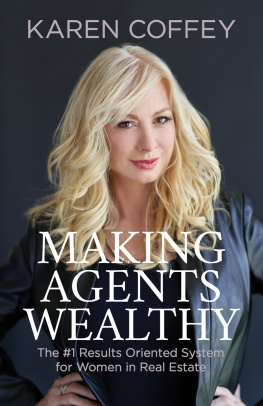
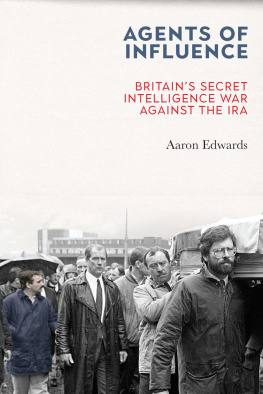
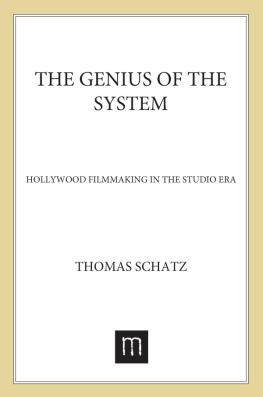

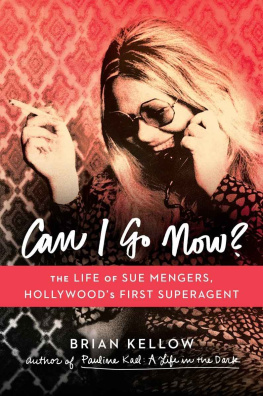
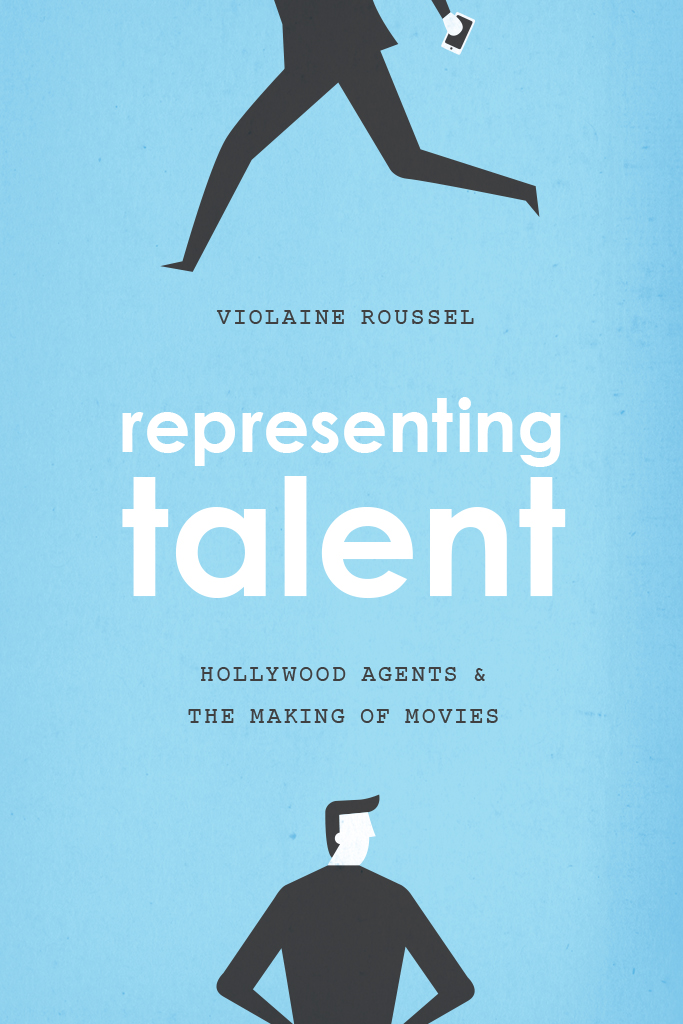
 This paper meets the requirements of ANSI/NISO Z39.481992 (Permanence of Paper).
This paper meets the requirements of ANSI/NISO Z39.481992 (Permanence of Paper).